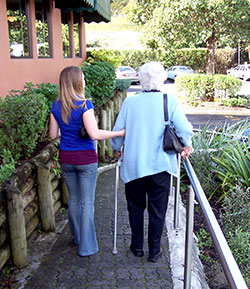By Josie Grove

While State Senator Patricia Jehlen contends that most elderly caregivers are doing good work, special efforts ought to be made to weed out and punish the bad ones.
There were over 7,000 confirmed cases of elder abuse in 2015, according to the Massachusetts Executive Office of Elder Affairs. The count includes physical, emotional, and sexual abuse, neglect by a caregiver, self-neglect, and financial exploitation. If abuse is reported, the EOEA investigates the report, and protective services can intervene.
If the abuse is deemed to be “serious,” a somewhat nebulous term for which the state has given no concrete definition, the cases are given to the local District Attorney’s office to be tried criminally. In cases of serious abuse, Senator Patricia Jehlen (D-Somerville) wants the consequences to extend further.
As for her definition of serious abuse, “Look at the video,” said Jehlen, referring to a WCVB-TV report about abuse in nursing homes. “If you don’t think that’s serious abuse, I would be very sad.” The March 2016 television report prompted Jehlen to sponsor a bill calling for harsher and more permanent consequences for licensed caregivers found to be abusing people in their charge.
The senator has a personal connection to this issue: her father had a caregiver as he struggled with dementia. Jehlen had only positive memories about her father’s caregiver, but she says not all families are so lucky. “We’ve heard from people all over the state where their relatives had incidents,” she said. “People have had their loved ones abused, and in those cases many have already died, but they want to protect other people.”
People found guilty of elder abuse face penalties ranging from a $1,000 fine to ten years in prison. Caregivers found to be abusing elders in their charge face additional penalties, and the suspension of their professional licenses.
Jehlen’s bill, co-sponsored by seventeen other state senators, extends the consequences for abusive caregivers. Under current law, caregivers who have been convicted of elder abuse can return to the profession as soon as their probation is over. “Even if the license is suspended, that suspension ends when their probation ends,” said Jehlen. “And no one will know. We want that to be a permanent part of their record.”
Even with harsher penalties, it will be difficult to verify abuse. The two attacks broadcast on WCVB were filmed on camera phones by either the abuser or another person complicit in the abuse. Jehlen hopes that relatives would report any suspicions of abuse to the state, and that nursing homes and other institutions would notice the abuse. “There’s really no other way to do it than to have cameras in everybody’s room at every moment, and I don’t think most people would support that,” said Jehlen.
Over 41,000 Massachusetts residents were living in nursing homes in 2014, according to the Kaiser Family Foundation, and still more receive care at home. Jehlen hastened to say that abuse is not widespread. “Many people do a very competent job, and even a loving job,” she said. “Most, the vast majority of caregivers, are working very hard for very little money in a very important job, and I don’t want anybody to think that most caregivers are dangerous. Very, very few. But those few should not be there.”
The bill and its counterpart in the assembly are being considered by the Joint Committee on Rules. Jehlen hopes the harsher penalties will make a tangible difference in the lives of elderly and disabled people. “These are horrifying incidents, and they should not happen, and we want to make sure they don’t get repeated.”

















Elderly lives matter!